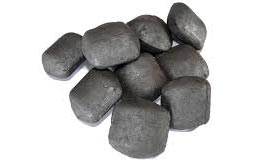What are the different types of carbon paste?
Carbon paste is a versatile material used in various applications such as electrochemistry, sensors, and electrodes. The types of carbon paste can vary based on their composition and intended use. Here are some common types:
Graphite Paste:
Graphite paste typically consists of graphite powder mixed with a binder such as mineral oil or paraffin wax. It’s often used in electrochemistry for its electrical conductivity and chemical stability.
Carbon Nanotube Paste:
Carbon nanotube paste contains carbon nanotubes dispersed in a binder. It offers high electrical conductivity and mechanical strength, making it suitable for applications requiring high-performance electrodes, such as in biosensors and supercapacitors.
Carbon Black Paste:
Carbon black paste is made from finely divided carbon particles dispersed in a binder. It’s used in various applications, including inks, coatings, and electrodes, due to its high surface area and electrical conductivity.
Activated Carbon Paste:
Activated carbon paste consists of activated carbon particles suspended in a binder. It’s commonly used in environmental applications for adsorption purposes, such as in water and air purification systems.
Screen-Printed Carbon Paste Electrodes (SPCEs):
SPCEs are a type of carbon paste electrode manufactured using screen-printing techniques. They are used in electrochemical analysis and sensing applications due to their ease of fabrication, low cost, and versatility.
Carbon Fiber Paste:
Carbon fiber paste contains carbon fibers dispersed in a binder. It offers high mechanical strength and conductivity, making it suitable for applications requiring durable electrodes or structural components.
These are just a few examples of the types of carbon paste available, each with its unique properties and applications. The choice of carbon paste depends on factors such as the specific requirements of the application, desired electrical and mechanical properties, and cost considerations.





